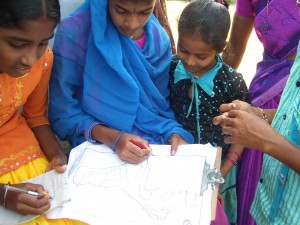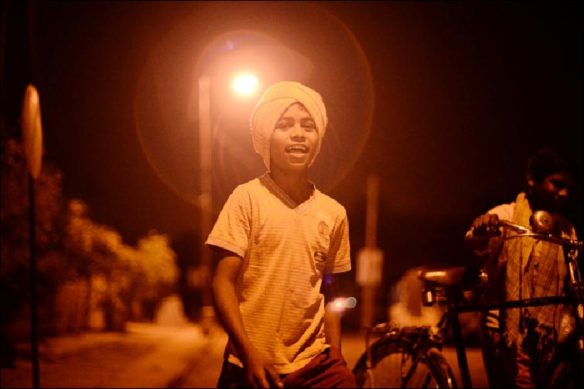Children act on effects of alcohol consumption in three Panchayats
One of the prevalent social issues that emerged from children’s contributions to the 2004 five-year plan was the problem of alcohol abuse. Although children in three Panchayats (Hallihole, Madamakki and Paduvari) were raising this issue with their local governments, they had been given short shrift and told it was an ‘adult matter’. Faced with this form of resistance and based on their previous experience of conducting research, children knew that if they had to make any progress on this issue, they needed to have a clear-cut strategy and appropriate information.
Simultaneously, Makkala Panchayats in these Panchayats were witness to the impacts of the Karnataka government’s order banning arrack in the state in the year 2006. Children observed that with the ban in place, most families had increased their spending on non-arrack forms of liquor, which were more expensive than arrack. Children also observed that some of the other claims of the government in terms of reduction of fights and abuse at home due to the arrack ban, did not seem to be coming true.
To solve their problem of alcohol abuse, as well as to identify impacts of arrack ban in their communities, the Makkala Panchayats resolved to carry out a broad-ranging alcohol study. They identified child researchers and held a capacity building workshop where they developed the framework of the study, designed appropriate methodology and tools (viz. mapping, drawing, interviews and focus group discussions), and worked out modalities for conducting the study. These discussions were facilitated by adults.
The findings revealed the extent of alcohol consumption in rural areas and the ineffectiveness of the arrack ban in reducing overall consumption.
- In 60% of the families surveyed at least one person consumes alcohol
- Although the ban on arrack has reduced the overall quantity of alcohol sold, the overall amount spent on liquor has increased
- Regular consumers have increased their consumption
- Pressure on women and children to work has increased
- Consumers either pawn or sell family assets due to additional expenses for drinking
- Ban has resulted in an increase in unlicensed alcohol sellers
While revealing the extent of the alcohol problem, however, the exercise also gave children an opportunity to correct adult assumptions about their feelings. Children were strongly opposed to direct punishments or humiliation of alcoholic relatives.
I have a family member who drinks a lot and creates a lot of problems and we have even complained to the police about him. But now I can think from his side and see that he is also a person and has got problems of his own.’
– Prameela, Child Researcher, Madamakki Panchayat



